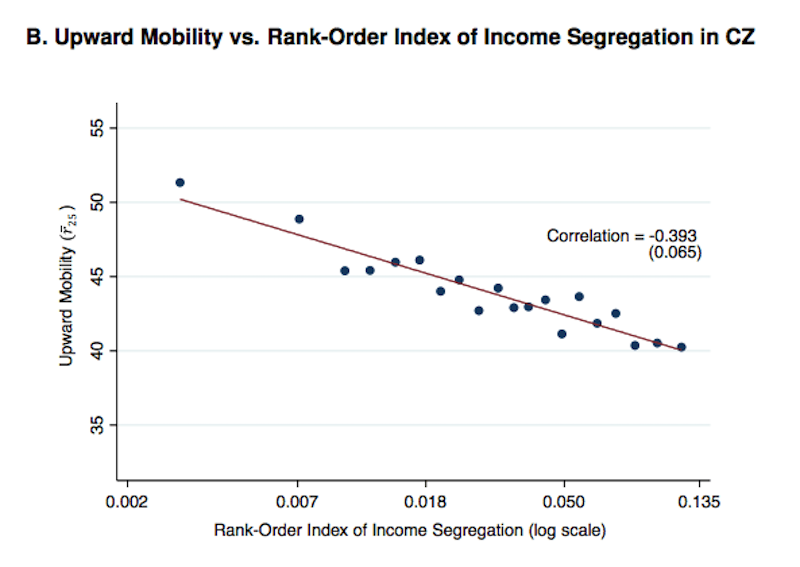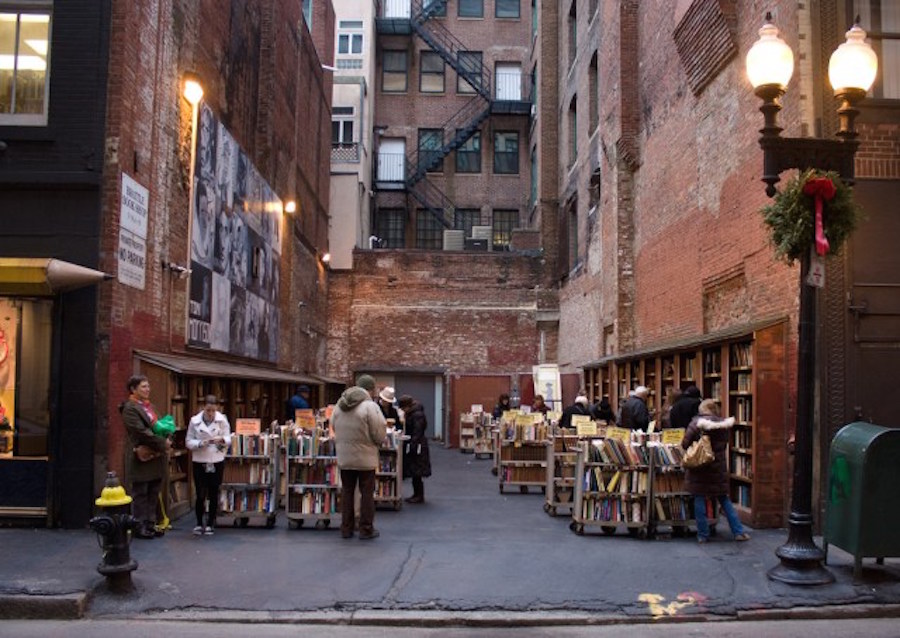Why does economic inequality—as opposed to just poverty—matter? There are a lot of reasons, but a big one is that higher levels of inequality make it harder to improve your economic position. As Federal Reserve Chair Janet Yellen has argued, the bigger the gap between rich and poor, the harder it is for the children of rich and poor to have equal opportunities to make their lives what they would like. So at the national level, more inequality means less economic mobility.
But at more local levels, the story is more complicated. The massive study on economic mobility carried out by Raj Chetty and his colleagues and released last year found that more unequal metropolitan areas were, in fact, worse for mobility.

But they also found that in more economically segregated metropolitan areas, low-income children were less likely to make it out of poverty. In part, that makes sense: in segregated regions, poor children are more likely to grow up in neighbourhoods, or municipalities, with high concentrations of poverty—which in turn leaves fewer resources for the kinds of public and private amenities, from schools to stores, that help people improve their quality of life.
From our partners:
What does that mean for inequality? Well, high levels of segregation are created by economically homogenous neighbourhoods:
“Rich people live near other rich people, poor people live in neighbourhoods of high poverty.”
In other words, more segregation equals more neighbourhood-level equality. A wealthy suburb where everyone earns six figures is going to have very low levels of income inequality; ditto a neighbourhood where almost everyone is economically struggling. In that sense, given high levels of regional inequality, sub-regional equality—in a neighbourhood or municipality—isn’t really a good thing.
That’s an important caveat to coverage of urban inequality, like this one from Fast Company, covering a report from the Brookings Institution. At a national and regional level, high levels of inequality are very bad. But local policy is mostly made by municipalities at a sub-regional level. And the only way for municipalities to pursue more equality is, in effect, by pursuing economic segregation.

As we’ve written before, this is admittedly counterintuitive. With most other national issues—poverty, say, or school segregation—we can take a problem we know to exist across the country and drill down to see which regions, cities, and neighbourhoods are most badly affected. But doing the same with inequality ends up being quite misleading. It means something very different for a city or neighbourhood to have a high 95/20 ratio than for the country as a whole. It would be a great thing for national inequality levels to fall; but does anyone think Chelsea in New York City would be a more “equal” place if its public housing residents were all removed, leaving only the wealthy and reducing its 95/20 ratio? Would it be unprogressive to create affordable housing in a place like Winnetka, Illinois, increasing local inequality thereby making it a place where both rich and poor could live?
This is not to dispute, as Brookings argues, that there are trade-offs: Low-income households in economically integrated neighbourhoods—that is, neighbourhoods with high levels of economic inequality—may face higher prices for some goods and services. But on net, there’s little evidence that they’d be better off if all the rich people decamped for some exclusionary community. (As they are, in fact, increasingly doing.) Ironically, then, if local officials want to fight national inequality, they ought to focus on creating integrated, affordable neighbourhoods—even if that means those neighbourhoods appear more “unequal.”
This feature originally appeared in City Observatory.















